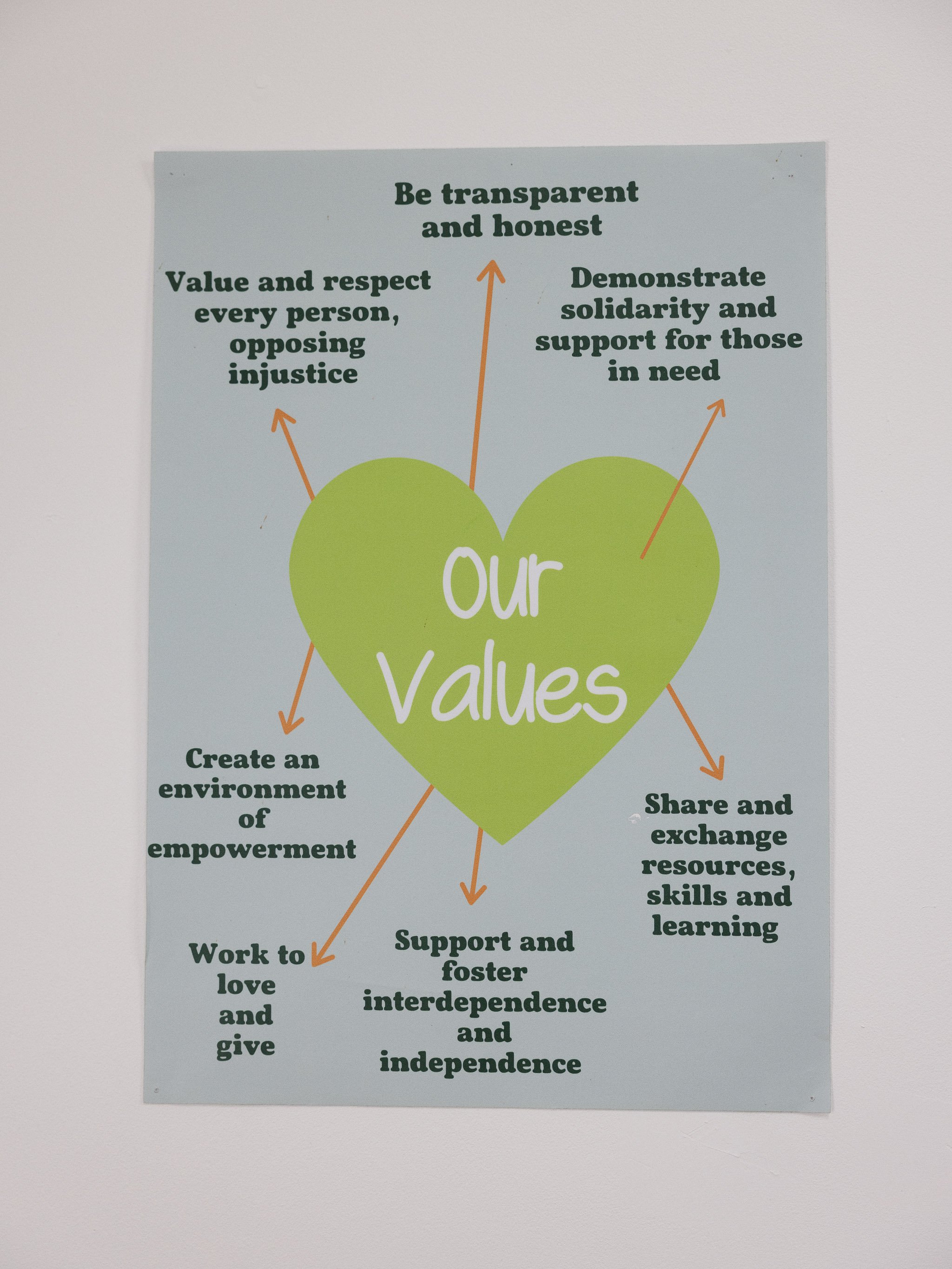“Emmaus gives you back a future”
Emmaus
Founded in Paris after the Second World War, Emmaus is an international charity which provides formerly homeless people - known as companions - with a home and work. They’ve been in the UK since 1992, and their North East site in South Shields has space for 22 companions, with the community supported by a series of shops and social enterprises. We paid them a visit to speak to both staff and companions about Emmaus, its ethos and its impact.
Interview by Arlen Pettitt
Photographs by Christopher Owens
Emmaus North East sits by a roundabout, opposite a park, in South Shields. The last building in a row of terraces, you wouldn’t know it was any different but for its front door, painted in the bold green of the Emmaus branding.
Not that it’s hiding. If you approach from the roundabout itself, there’s a big sign proclaiming exactly what Emmaus is and what it does:
“A charity that provides a home and meaningful work to 22 formerly homeless people”.
Once you’re inside, there’s a large communal space, with sofas, tables for meals, a kitchen, and an office for the staff who run the community. It’s here we sit down with companions Tony, Michael and Brian, as well as Erin, a former companion who is now in a paid position as a support worker for the community.
“The thing that separates Emmaus from other homelessness charities is they don’t do everything for you. They encourage you to do it yourself. Once you’re willing to do it, they work beside you all the way.”
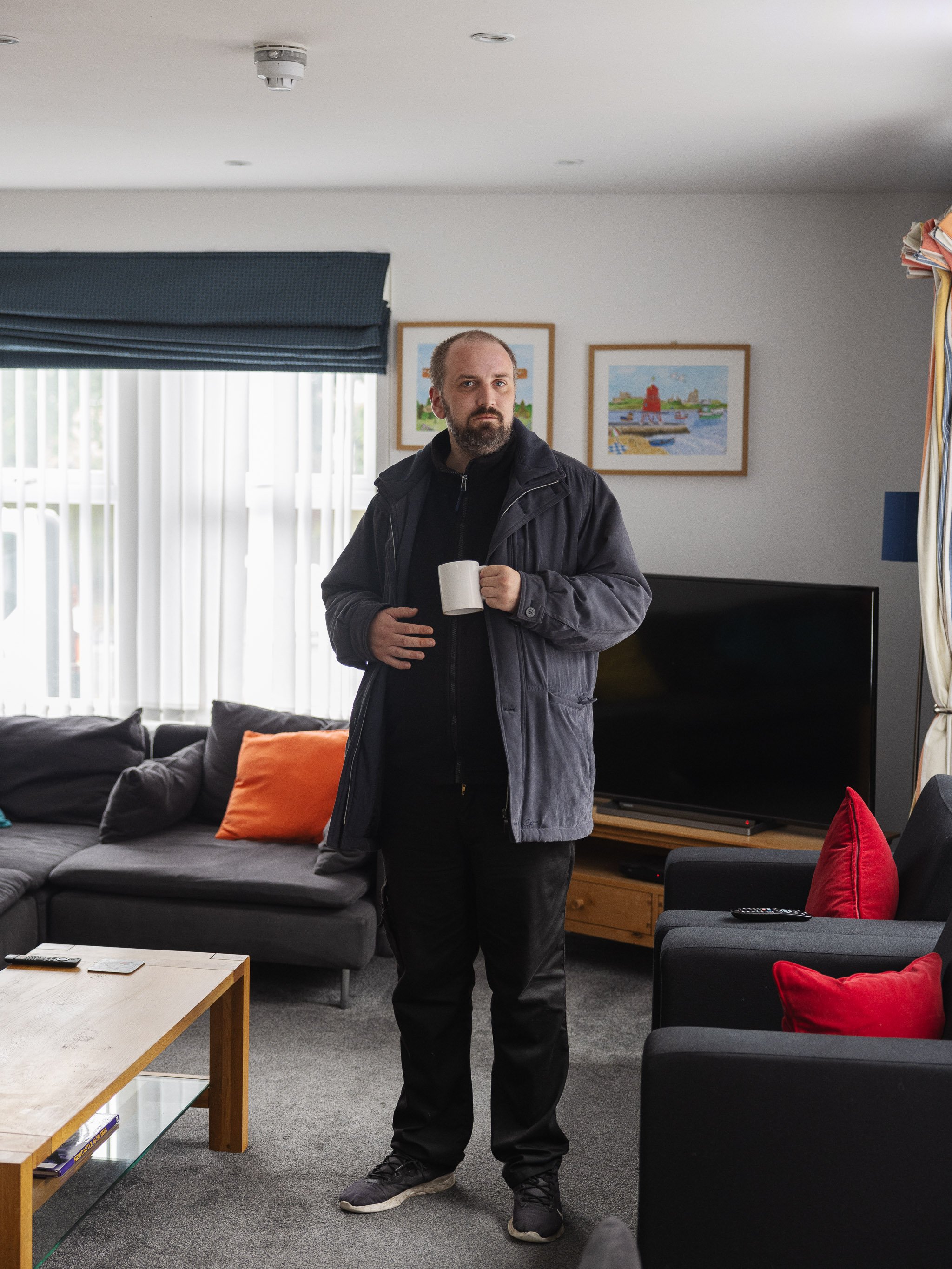

Within just a few minutes, it’s obvious that although each of their stories is very different, how they feel about Emmaus and what they get from it is quite similar - stability, routine and the opportunity to take back control of their lives.
“Emmaus gives you back a future,” explains Michael, who has been with Emmaus since 2017, and in the North East community since 2018. “It’s about having your pride and your dignity returned to you. That’s what Emmaus is about, helping you and giving you the tools to rebuild that, build something better. You could be 55 years old, you could be 18 years old, it gives you the choice to change your life.”
Michael, originally from Galway in Ireland, experienced homelessness beginning in his childhood after his parents separated and his mother became isolated from their extended family. By his late teens he was tangled up in crime, drugs and alcohol, and in 2014, he left Ireland for a fresh start in England. Another spell of homelessness followed, and he entered the Emmaus community in Coventry, before moving to Gloucester and then the North East.
“The thing that separates Emmaus from other homelessness charities,” he continues, “is they don’t do everything for you. They encourage you to do it yourself. Once you’re willing to do it, they work beside you all the way - with housing, education - if they can do it, they will. But you’ve got to be willing to make the effort. It’s a partnership.”
That sense of partnership is important; companions are encouraged to play an active part in the community, working in the social enterprises or helping the day-to-day running of the centres. It’s a two-way street, where they bring who they are, their skills and capabilities, and Emmaus supports that - there are responsibilities, but rewards as well.
For Brian, who has been with Emmaus just over a year, that’s meant working in the kitchen and cooking the meals for the companions. As someone who is still fairly new to Emmaus, I ask him how he feels about the community and its ethos.
“I love it. I love what it stands for,” he says. “There’s always someone to talk to, you’re only on your own when you choose to be on your own, you’re never dwelling over things. It’s given me purpose again, it’s made me want to work again. It’s given me routine which is the most important thing, because I used to just hammer drugs all the time to fill my gaps, sit on my own getting depressed and doing nothing.”
Brian came to Emmaus having been kicked out of where he was living for being involved with drugs, and was quite quickly reconnected with something which had been an early passion but he thought had been left behind.
“I’ve done all sorts here,” he says, “but now I’m the cook, I’ve been in the kitchen since March. I was a chef. I left school when I was 16, went straight on YTS for three years and got my NVQs, then worked for ten years.”
He’d fallen out of love with cooking, but is now enjoying being back in the kitchen and is seeing it as a potential route to work once again.
“If it wasn’t for Emmaus, I would never, ever work again,” Brian says, “I’d probably still be doing the same crap I was doing. I never wanted to work again, I thought I was happy enough on the dole doing what I was doing, which was nowt. But, I obviously wasn’t happy, I didn’t realise what working did, how it made you feel - you know what I mean? - you actually do feel good in yourself instead of putting yourself down.”
As well as the roles in the house, Emmaus North East has three retail shops which sell donated goods, a workshop which builds and upcycles furniture, and a laundry.
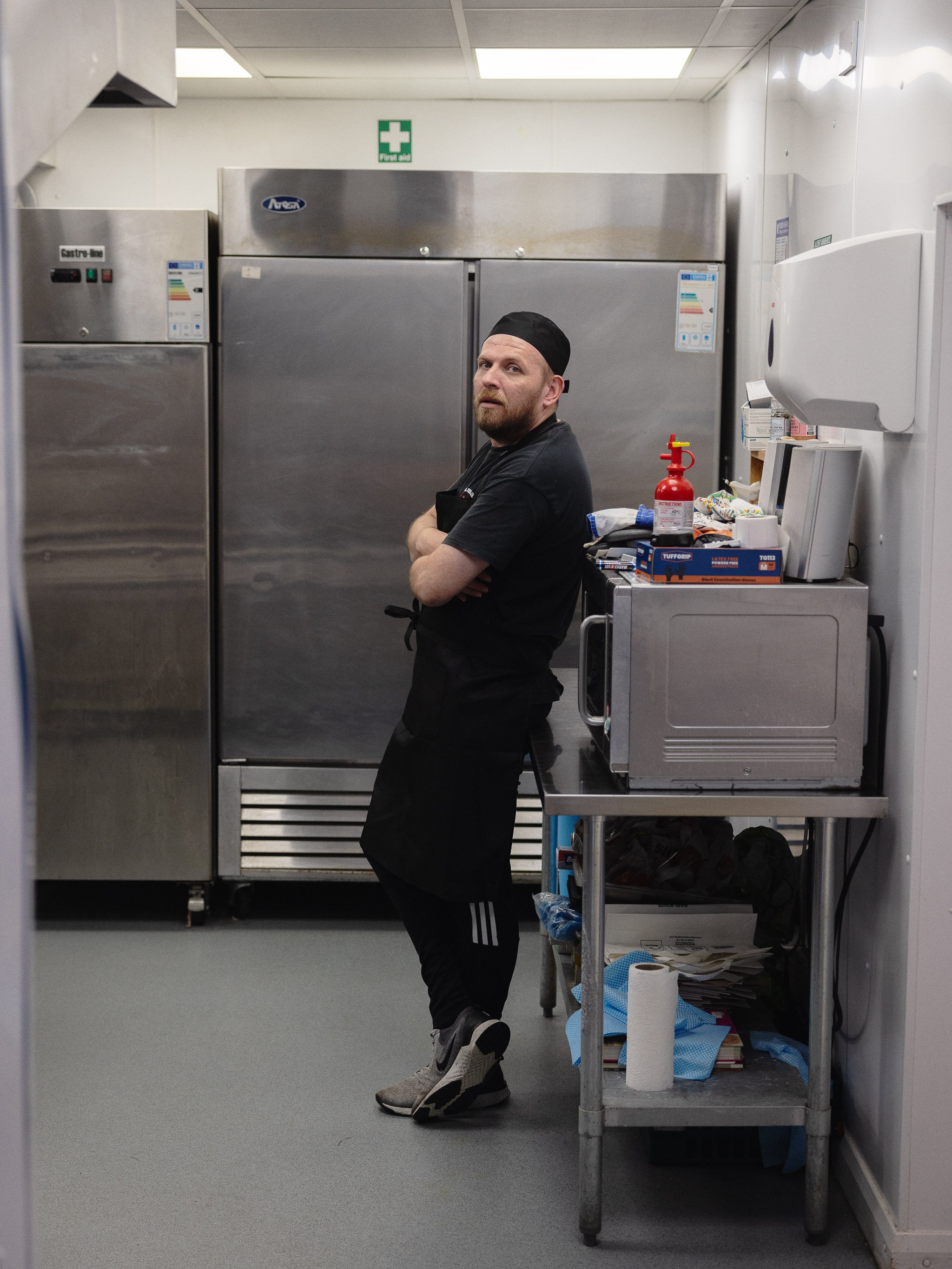
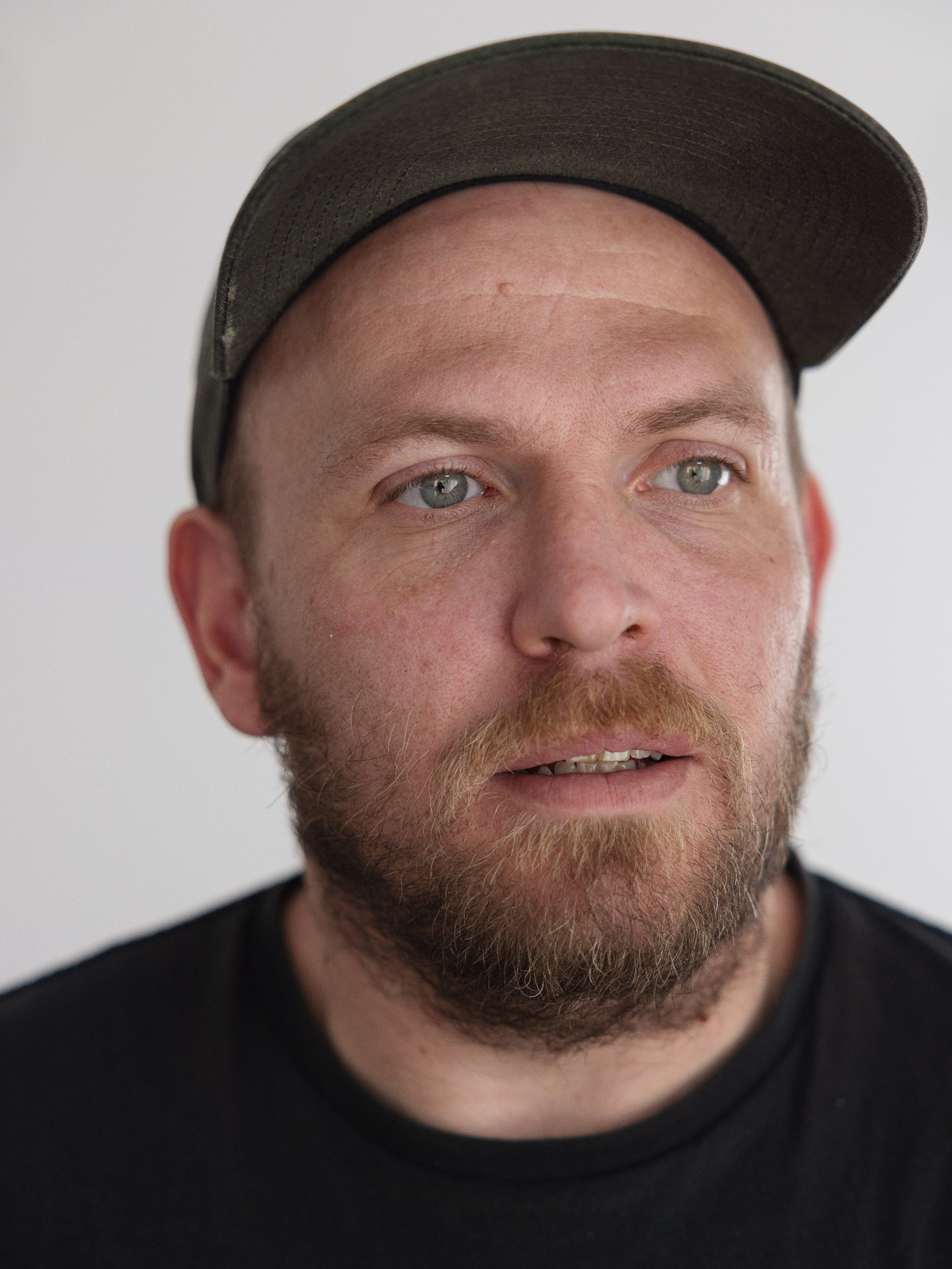
“If it wasn’t for Emmaus, I would never, ever work again. I’d probably still be doing the same crap I was doing. I thought I was happy enough on the dole doing what I was doing, which was nowt. But, I obviously wasn’t happy.”
I ask Erin how she and the other staff work out who is best suited to each role.
“We start off with their skillsets and what they are comfortable with,” she says. “They might not be comfortable working in the retail side of it, dealing with customers, so it might be working in their community house or in the workshop. But the majority of companions actually don’t mind working in the shops and meeting new people, and it gets their confidence up as well.”
Erin knows the process, having been a companion herself, first in Hull and then Dover, having become homeless after losing her job and falling behind on her rent. She then heard about the paid support worker role in the North East and was encouraged to apply.
“I think it’s good that quite a few staff members here were companions,” she continues. “I live on site as well. Sometimes it is a downfall but there are bonuses with it as well. We had pizza to celebrate a new shop opening, and just chilling out with everyone–”
“The Newcastle match was on,” adds Michael.
“And obviously,” Erin carries on, “because the Newcastle match was on–”
“We do like comedy here…” says Tony.
“It’s nice just to sit down and relax,” Erin picks back up, not letting them throw her off, “because there are some bad days we have and it’s good to have the fun as well. We went out bowling last night as well, a few of us - we do activities to make sure we’re getting that fun time.”
Who won the bowling, I ask. When they say it was a staff member, I say they must have been practising.
“Yeah, strange how we hadn’t seen her all week…” Tony says.
Tony grew up in Darlington, but joined Emmaus in Bolton after being homeless on and off for nearly 20 years after his marriage broke down. That was 2016, and he moved to the North East about two years ago to be closer to his elderly father.
He works in the retail shops, as well as driving the van ferrying companions around where they need to go (“He’s our chauffeur,” Erin says), and helping out with deliveries from the furniture part of the charity.
Tony talks about Emmaus as a platform for being part of the wider community as well, and stresses how important it is - to him at least - to have a life outside the house. He’s a photographer, and before we start he shows us some of his photos of the South Shields coast. He’s also a keen runner, and volunteers with local Park Runs.
“They’ve got what’s called the Emmaus community fund,” he says. “I applied for that and got some decent proper running shoes and waterproof jackets and that sort of stuff. It’s not just work stuff they’ll help you with, if you’ve got an interest like that they’ll back you with that as well.”
“I do the local Park Run myself,” he continues, “I volunteer with the junior Park Run on a Sunday morning, so I’ve got a life outside of Emmaus. I’ve got a circle of friends with that, plus I go to football with a few of them from Park Run.”
Some health issues last year meant Tony wasn’t able to work or drive for a few weeks, and he was itching to get back to it. and credits the team with helping him through that period.
Tony’s looking well now, and I ask what the future holds for him.
“I’m 63 now,” he says, “so the way I look at life now, if I was to go into a new job, a lot of places are going to knock me back because they’re not going to spend money on training me when I’m this close to retirement. I’m happy at the moment where I am, doing whatever they need me to do here. And for the next three years doing the Great North Run!”
There’s certainly plenty to do, with the shops and the workshop, and everyone has their role.
Michael works in Lucie’s Laundry, one of the Emmaus North East’s social enterprises, which offers a free laundry service for anyone who needs it in the local community.
“Its main focus is to give back to those who can’t help themselves,” he says. “That’s part of the job description. It’s not just the laundry service, it’s a place people can feel relaxed and comfortable and de-stress. Due to the difficult environment up here in the North, where most of the incomes are below average, people’s living standards are too. So my main job is not just to be there to help with the washing, it’s to be a supporting arm, for a chat, to let off steam. At least have that one hour for someone who is socially isolated and alone.”
Michael is open about how his own path would have taken him to prison, or worse, had he not found Emmaus, and it sounds like he plays an equally important role helping fellow companions.
He’s well-versed in the history of Emmaus, and mentions the founder Abbé Pierre, the first companions, and ties almost everything back to that founding ethos. That includes one of his roles as a Responsible Companion, with his door always open to help people adjust when they first arrive, settle and get along as a community.
“You get a lot of guys who are a bit troubled,” he explains, “and I guide them as best I can, sometimes they shout at me, sometimes they listen. It’s trying to find that balance, teach them there’s another way.”
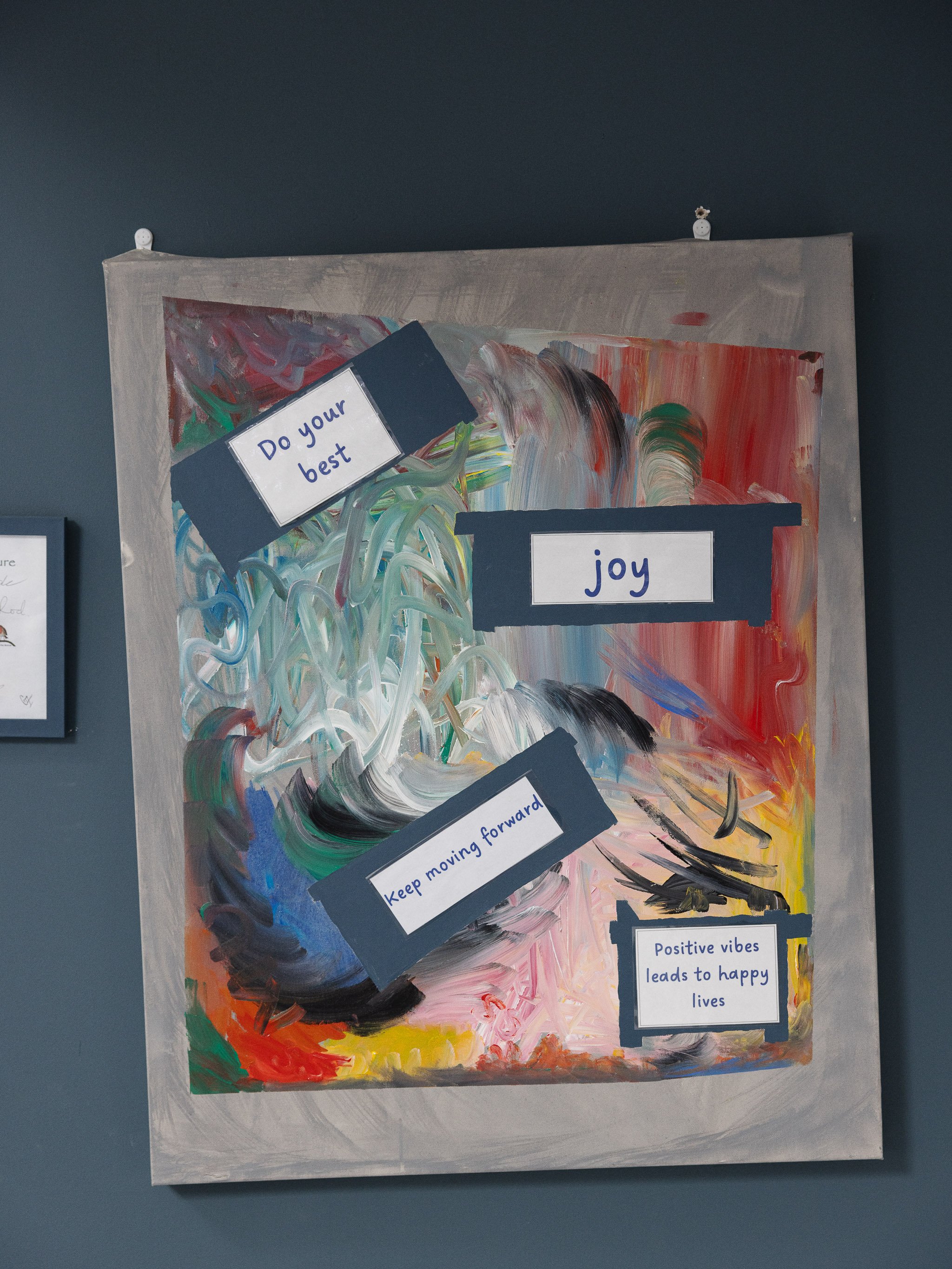
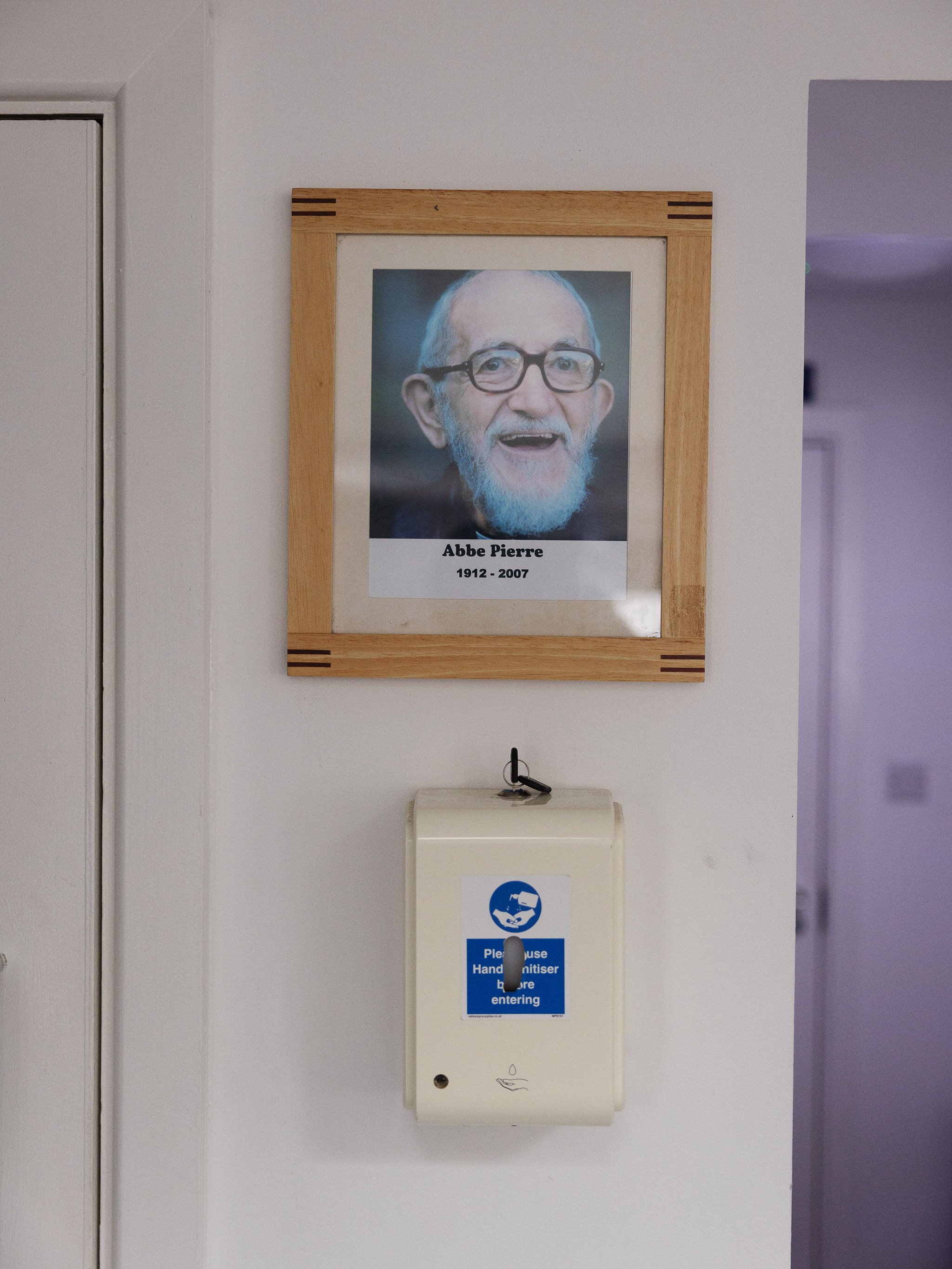
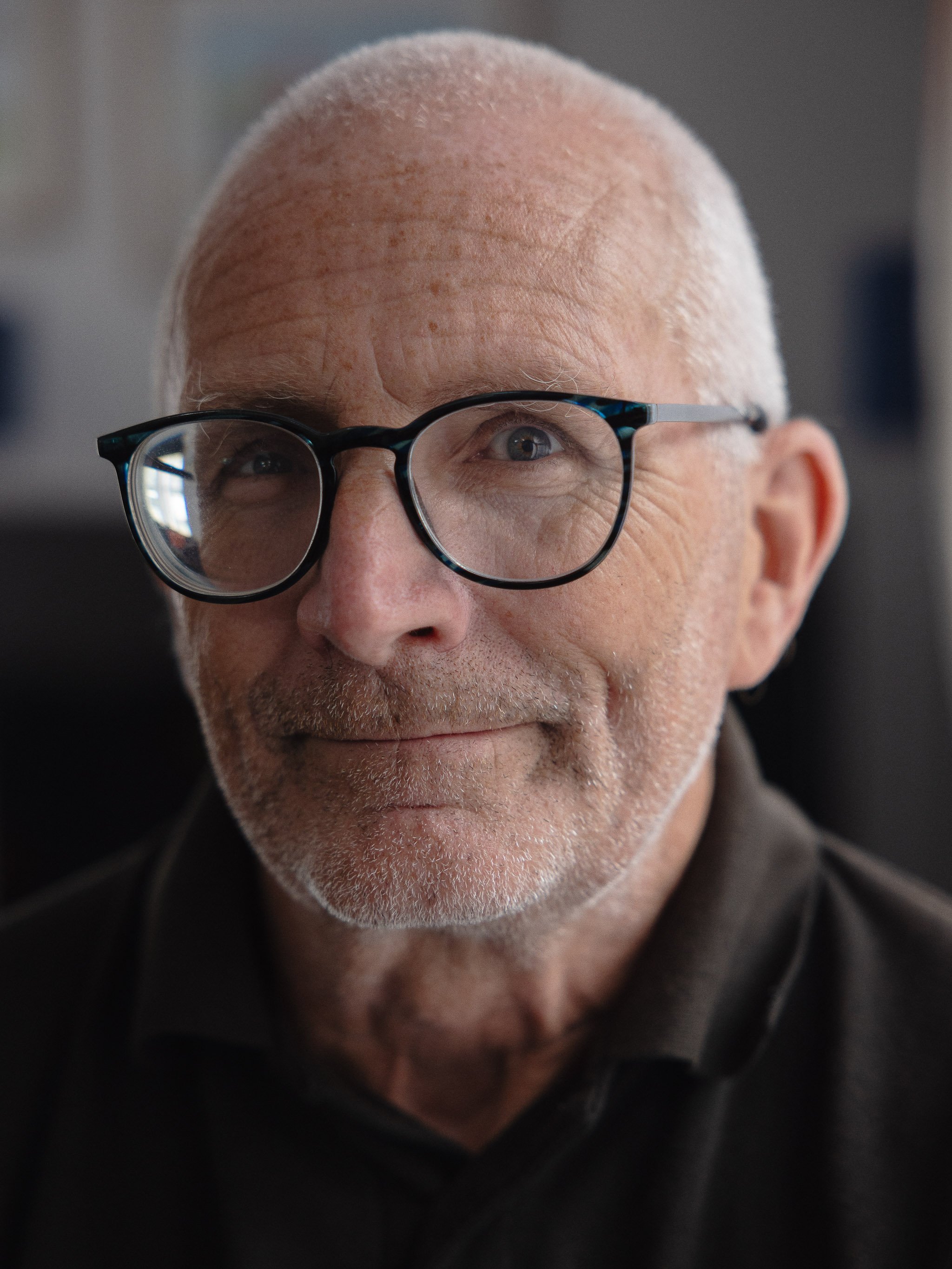
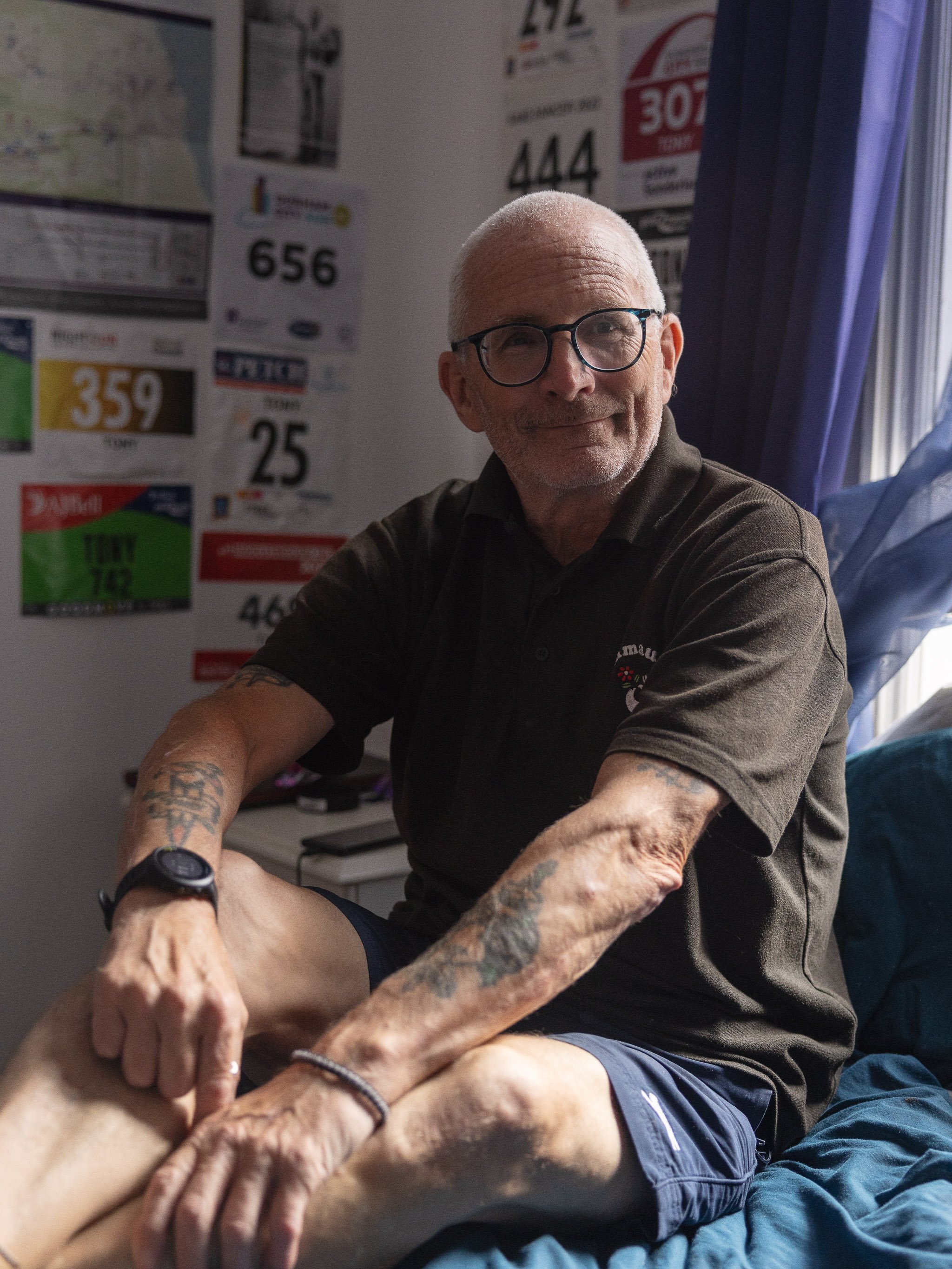
When we sit down later with Ruth Parker, the CEO of Emmaus North East, she explains how when someone arrives, they never know how long they are going to stay.
“The average stay is about eight months,” Ruth explains. “What I would say is, in recent ones, if we average that out it will be longer.”
That's due to a variety of factors, but Parker cites the safety and security of the Emmaus community as important in keeping people there. Given the broad insecurity of the world at the moment, it’s understandable that companions would value the stability of an Emmaus community.
Joining Emmaus North East in July 2022, after working in a victims charity and the criminal justice system, Parker arrived at a challenging time. With a cost of living crisis following the pandemic, their services have probably never been in higher demand, and so her focus for Emmaus North East is on both growth and long-term stability.
In the last couple of years, the capacity of Emmaus North East has grown from 15 to 22 by expanding into neighbouring properties, and opening a new retail shop in Jarrow last year was an important step towards increasing revenue.
“The early signs are fantastic,” she says, “that it’s going to be bringing in the income we projected, and that means we can do more for companions and staff. More income and more opportunities.”
The last few years have also changed the support companions need when they first arrive, with people often suffering from more complex mental health issues.
“One of the things I wanted to see quite early on [after joining as CEO] was more immediate access to professional therapy and help for people coming in,” Ruth explains.
Companions are always registered with a GP within three days and undertake health checks and a visit to an optician, but access to specialist services like mental health support still meant going on a waiting list.
The solution was a Community Wellness Project, with support from the P&G Fund, which focuses on providing specialist, trauma-informed counselling to companions.
“What we do know,” Parker says, “is that for 96% of people who become homeless, they have experienced trauma within their lifetime at some point. That's why this particular type of therapy was really important to bring in. That project is going really well, and we've already seen some positive results.”
The project is a good example of how Emmaus leverages connections and support from businesses to help it progress, but they also partner closely with the public sector and other agencies.
“I don't think the relationships with senior people at local authorities could be any better,” Parker says. “The support that they give to Emmaus and their understanding of what we are about and that if we can get it right it improves public safety, because you haven't got high volumes of people living on the street.”
The local authorities, agencies and others with a stake in homelessness meet regularly and discuss individual cases of rough sleepers, sofa surfers and those on the brink of homelessness. The idea is to make sure people get the right support at the right time, including with Emmaus.
“Maybe that very week, or that day, we're not the right place for them,” Ruth explains, “but if these things happen, we may be in a month’s time or six weeks’ time. It’s about developing those partnerships with referral services, as many as we possibly can and in as many places as we possibly can.”
It’s not just traditional routes either, as Emmaus North East was the first in the country to take referrals for veterans leaving the armed forces without a place to go. Parker gives one example of a man named Ryan who stayed with Emmaus and now works for Amazon. He’s now out of the community and in his own property.
That point around next steps and having somewhere to live is a big challenge for Ruth, Emmaus and other homelessness services like them. Parker says a lack of affordable housing makes the transition difficult, and there are places she’s seen that she wouldn’t encourage a companion to move into, for fear that it would feel like a step back rather than a step on.
A companion’s wellbeing is central to all of Parker’s work, and so they are shielded from a lot of the business challenges the charity faces.
“What I don’t need the companions to see at all,” she says, “is that one of my highest priorities is running this charity like a business. Everything that falls under Charity Commission guidelines, and governance and business planning and risk, is high priority for me. But I’d like to think the companions don’t see any of that. That’s what I work on in the background, that’s what I work on with the staff team and what I work on with the board of trustees.”
Funding is always a challenge, and is a balance between commercial income streams and other funding. As well as partnerships like those with the P&G Fund, there’s some central government money too.
“Our Community Activator Project is being funded by the Department of Culture, Media and Sport,” Parker explains, “and we’re one of three charities across the UK focused on reduced chronic loneliness and social isolation.”
“It’s going to allow us to have more volunteers in all parts of the charity,” she continues, “which is really good for companions meeting new people and working in different parts of the community. But where it’s quite different is a big part of the project is us giving something back. So, by volunteering and being involved with Emmaus North East, what’s that giving to members of the community who are struggling either with deprivation, loneliness or social isolation?”
That community connection is important. Parker talks about the need to get beyond dealing with cases and waiting lists and on to preventing homelessness, as well as helping people understand the complexity of it.
“A thing that always concerns me,” Ruth says, “is that with a huge proportion of the population, they think homeless people must be dependent on drugs or alcohol, and that is not the case. Yes, there can be many people who fall into that category, but people become homeless for lots of other reasons as well. It’s educating people to help them to understand it, and how difficult it is for people to move on. They have to be determined and they have to be courageous. It’s those stories that will always drive what we do at Emmaus North East.”
“It’s about having your pride and your dignity returned to you. That’s what Emmaus is about, helping you and giving you the tools to rebuild that, build something better.”
At its core, Emmaus is a distilled version of life. It’s simpler, with fewer distractions, but everyone has their role and their part to play in the wider success of the community. What it gives is stability and routine, allowing people to build back up their resilience, ready to deal with the wilder winds of the outside world.
But Emmaus North East and its capacity of 22 is a drop in the ocean. Shelter estimates there are more than 1,500 homeless people in the North East, including more than 60 people sleeping on the streets on any given night.
So, what’s needed is more capacity, and more homes for the homeless.
For their part, Ruth Parker and Emmaus North East are keen to expand, in fact, Ruth has an idea for an Emmaus village, where everything - homes, volunteering opportunities, social enterprises, community resources - are in one place. She just needs a site, and money to do it.
“I will have it before I retire!” she says emphatically.
Learn More
To find out more about Emmaus North East, including opportunities for corporate partnership, volunteering and other forms of support, please visit their website.



